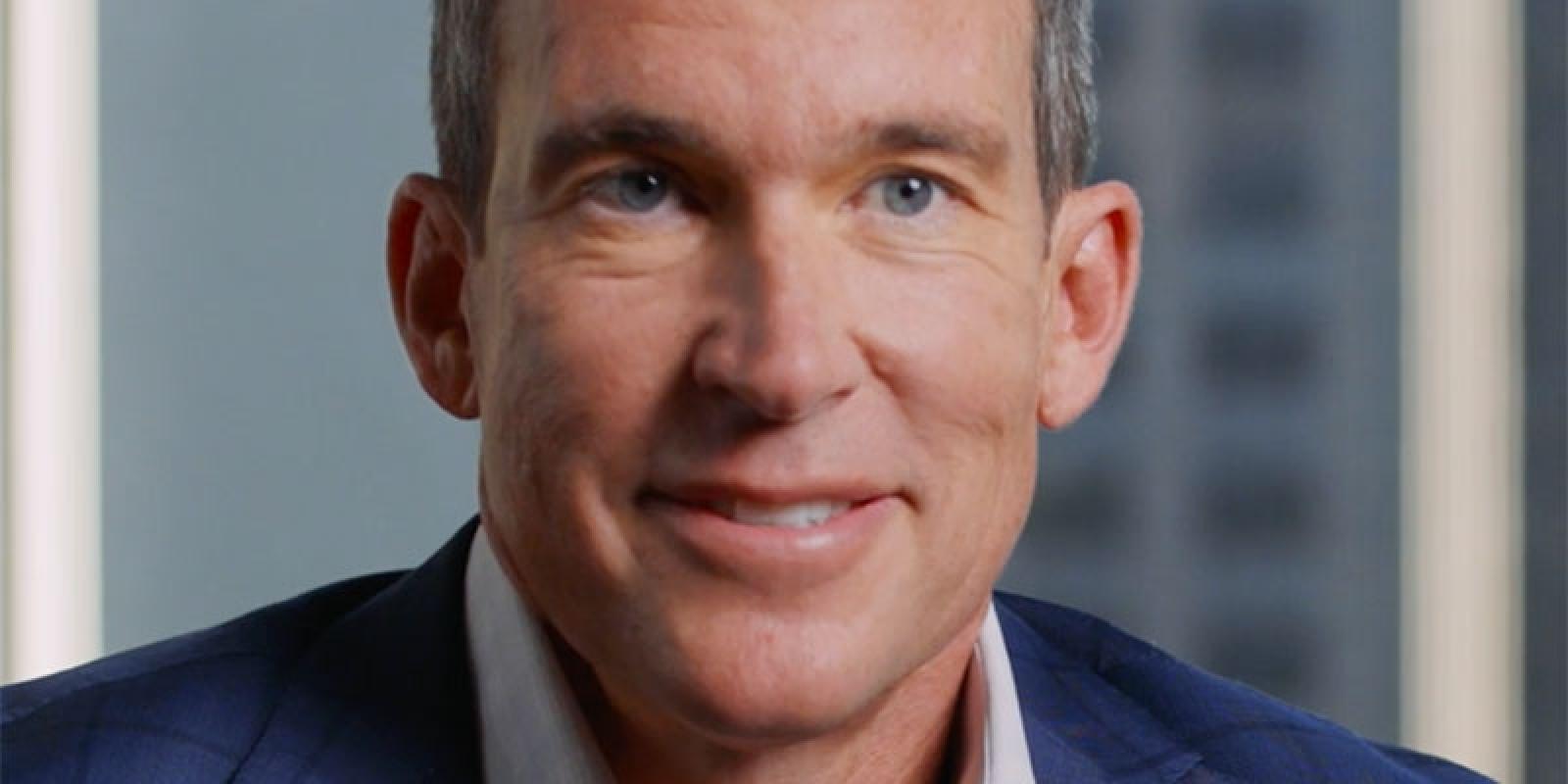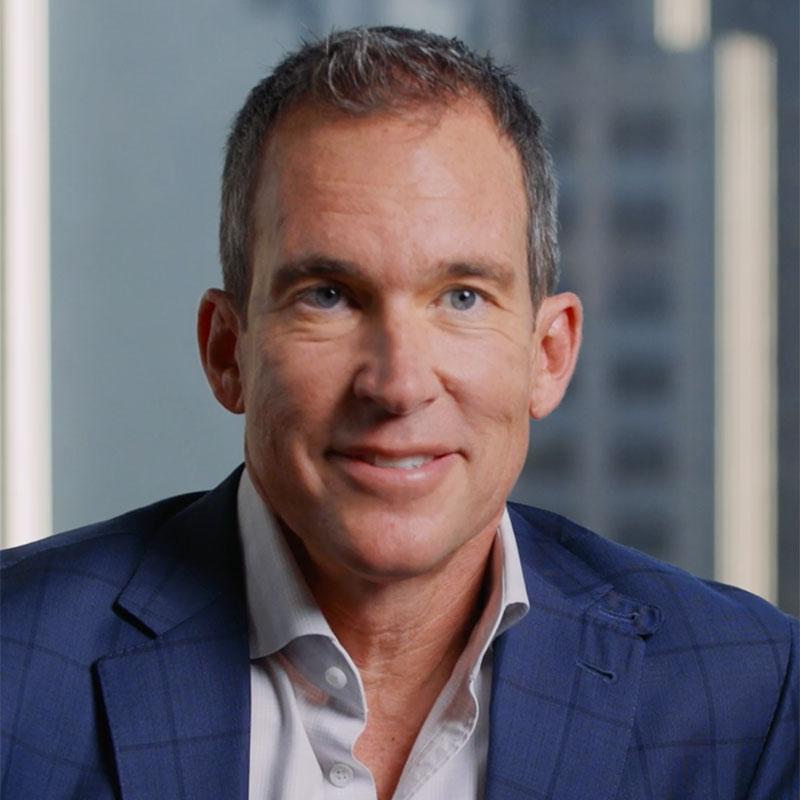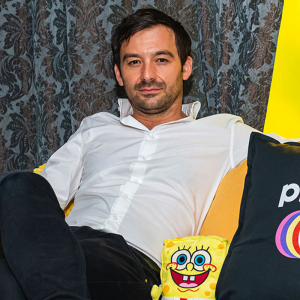JAN. 5, 2023
By Nicole Bitette
The new deal with Delta is another example of Paramount Streaming’s transformational partnerships, explains Jeff Shultz, chief strategy officer and chief business development officer of Paramount Streaming.
Earlier today, Paramount and Delta announced a collaboration that will change the in-flight experience for millions of consumers. All Delta SkyMiles Members will have access to free, fast Wi-Fi and Paramount+ while in the air.
The partnership is the most recent in a string of global deals—including those with Walmart, Sky, and Qantas—that have expanded the distribution of Paramount’s content and brands. Jeff Shultz has had a leading hand in many of these deals as Paramount Streaming’s chief strategy officer and chief business development officer. He joined Viacom in 2019, as part of its acquisition of Pluto TV, where he was the chief business officer. Since then, of course, Viacom merged with CBS, rebranded itself as Paramount, and launched Paramount+.
Through all the growth and change, Shultz says that he’s maintained a bit of his start-up spirit to ensure that Paramount remains innovative. “Paramount brings a unique level of creativity and ambition to deal-making and we're not satisfied unless we're doing deals that are different and differentiated from others,” he says.
Shultz spoke to the Paramount Newsroom about the Paramount+ and Delta deal, the importance of franchises, and how he’s developed a balanced leadership mentality.
Nicole Bitette: Describe Paramount’s streaming strategy and why it's unique.
Jeff Shultz: Paramount is in a unique position in streaming in that it has both a market-leading free service in the form of Pluto TV and the fastest growing pay streaming service in the form of Paramount+. That creates the broadest addressable market of free, ad-supported, and premium services, as well as a differentiated business model with both advertising and subscription. By putting both services, Paramount+ and Pluto TV, and strategies under a single group and a single leadership team, we're able to feed one off of the other.
We need to remember that a household subscribes to a service, not necessarily an individual. Being able to offer content—kids content, procedurals, sports, news—for multiple people in the house is a competitive advantage. That extends to Pluto TV, where there's a lot of Paramount content, but the vast majority of its content still comes from third parties. The proposition for Pluto TV is broader than any single media company could offer.
There’s also our global alignment. Tom Ryan, our CEO of Streaming, as well as President and CEO of Paramount Bob Bakish and CFO Naveen Chopra, have made it clear that it's a priority for the entire organization to rally around streaming. That includes the content studios, the brands, the franchises, as well as ad sales and distribution, product and technology, and the people on-the-ground in 30 markets around the globe to extend streaming globally.
NB: Paramount just announced a new partnership with Delta. How does that deal benefit Paramount+ and consumers.
JS: Last year, Delta approached us with a really interesting proposition. They were undertaking a really innovative strategy for in-flight Wi-Fi. Their plan was to bring free, lightning fast Wi-Fi—the fastest Wi-Fi ever offered on a plane—to every passenger with a Delta SkyMiles Membership. They were looking for a partner to add a streaming experience, which is where we came in.
It's a really, really innovative partnership. Essentially everybody on-board a Delta plane—50 million customers annually—will be able to experience the entirety of Paramount+ in-flight. We think it's going to be an incredible opportunity to share the service’s popular content, characters, and franchises to an increasingly large audience.
![]()
The broadest possible reach is table stakes for a streaming service, which means deals with every major platform.”
NB: Why was Paramount+ the right partner for Delta?
JS: Think about the diversity of interests on a plane. Delta saw in Paramount+ a partner that could offer something for everybody.
It’s no accident that Paramount+ is the fastest growing streaming service in the U.S. One of the reasons is the breadth of content that Paramount brings to streaming: major movies, scripted originals, championship sports, breaking news, reality, CBS procedurals and a dominant kids offering. It’s valuable to have something for everyone, especially with a partner such as Delta who prioritizes offering consumers a personalized journey.
NB: Can you walk me through the Walmart+ deal and how Paramount+ became a partner?
JS: The Walmart+ membership program is value-oriented. It's free shipping, free grocery delivery, a gas discount. Over a year ago, we approached Walmart about bringing an enjoyment or entertainment benefit to Walmart+ membership.
We expect the deal to be transformational, both for Walmart and for Paramount. One reason is the scale of Walmart. Every week, 150M people shop at Walmart, online or in stores. It is the largest retail store in the U.S. and it is unparalleled in terms of its reach.
Even more interesting is the fit between the companies. When we first met with Walmart, we weren't starting from scratch. We have a massive existing consumer products business with Walmart. Paramount content and characters and franchises are already on every store shelf of Walmart stores. We began acknowledging the fit between our content, the things that Paramount brings to the table, and Walmart consumers. Then we built on top of that with a really interesting business model.
NB: With all these recent deals, Paramount has a variety of distribution outlets and provides a number of consumer touchpoints. Why is this important?
JS: At a high level, the broadest possible reach is table stakes for a streaming service, which means deals with every major platform. Paramount has brought a unique level of creativity and ambition to deal making and we're not satisfied unless we're doing deals that are different and differentiated from others.
On the Paramount+ side, we have the bundles with Walmart and Delta I just mentioned, both which will be hugely impactful. On the Pluto TV side, an example is these deals we've done to integrate Pluto TV channels into devices. So Samsung, Vizio, LG, even Amazon and Google. Pluto TV is part of the main guide interface on those services and that is now a substantial portion of the overall reach and engagement and revenue that Pluto TV derives. That's a differentiated strategy, one that we built when Pluto TV was still an independent company.
“A franchise is not a decision, it's an asset.”
NB: What about content? What’s unique about Paramount’s streaming content?
JS: What the streaming market has shown us in recent years is that money is not enough. I'm talking about the “F” word: franchise. A franchise is not a decision, it's an asset. So, Paw Patrol, Criminal Minds, SpongeBob, NCIS, CSI, Top Gun, the Yellowstone universe. These are all distinct competitive advantages that money can't buy. We bring that to streaming as a unique competitive advantage over even the biggest streamers.
NB: Our CEO, Bob, loves to call Pluto TV a rocketship. It also recently appeared in Nielsen's monthly marketshare tracker, “The Gauge,” indicating its reach and prominence. Where do you see Pluto TV going?
JS: Bob has every right to be proud of the growth of Pluto TV. I distinctly remember the day after we announced the acquisition, David Faber on CNBC asked Bob, “Why should we care?” And now, just a few years later, Pluto TV is $1B business. It's 1% of all television viewing and reaches more than 70M people globally. That's a breathtaking transformation. It's really only possible because Bob, Naveen, Tom, and others align the entire company around Pluto TV to help it grow.
So, where does it go? It just gets bigger, attracts more audiences. All of the trends that supported Pluto TV's growth so far are still in place. In fact, many are still only accelerating. That means that the future is incredibly bright for Pluto TV. Also, its success being rewarded by more and more support from Paramount. But the flip side of that is competition. In coming years, more and more competition will be entering the ad-supported streaming space. But Pluto TV is a very, very competitive organization and has not lost its entrepreneurial instincts and competition coming really only emboldens Pluto TV to grow.
NB: Prior to your current role, you served as Chief Business Officer at Pluto TV. How did that experience set you up for your current role across both paid and streaming?
JS: I've spent about half my career at start-ups and half at major media companies, so I speak both languages. At a start-up, you tend to move faster, take more risks, and often deal with more uncertainty around roles and responsibilities. At a major media company, you have more resources, you have more reach, but of course, you have to manage process and organization. Pluto TV has been able to bring some of that entrepreneurial spirit into Paramount. I think the success and growth of Paramount Streaming has been driven by that entrepreneurial spirit in some significant way.
Pluto TV was a very partnership driven company and still is. In the months following the acquisition of Pluto TV by Viacom, I was wandering the halls of Viacom headquarters, essentially building these partnerships. Pluto TV was foreign, and free was not in the Viacom playbook. And so for a moment of time, it was on us to help the organization understand how Pluto TV could help Viacom, and now Paramount, grow. The support that we cultivated from Paramount has been a key catalyst for Pluto TV to come so far, so fast.









